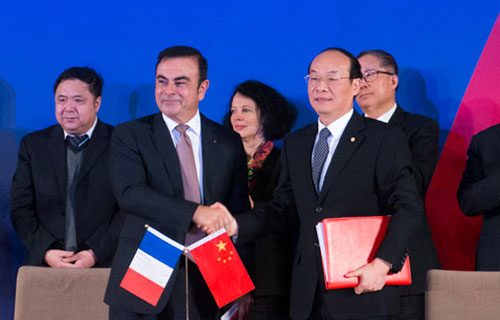

NANCHANG - When Zhan Anxiang bought an apartment in his county seat in east China this year he became entitled to a non-agricultural "hukou" (household registration), but has no interest in a change.
"If my hukou status changed, what would I do with my land?" asked Zhan, a farmer from Luojiatang village in Jiangxi province.
Zhan is not alone. Zhuliang township, which administers Luojiatang, is home to 97 manufacturers of school supplies which employ a large number of people. Increasingly rich villagers have bought homes in Zhuliang, but almost none wish to change their hukou status.
In Nancheng and nearby counties, around half of new apartments in county seats are snapped up by rural residents. Cities in the inland province of Jiangxi, except the capital of Nanchang, have less allure for rural residents.
Some 3,500 rural residents move into town each year, but almost none come to change the hukou status even there is no longer any hurdle, said Liu Zhiying, an official at the Yihuang county public security bureau.
Hukou status in small towns does not hold much benefit. Wang Kaiyu, a researcher with the Anhui provincial academy of social sciencies, says that many small cities are less developed and do not have enough fiscal revenue to offer good public services.
In comparison, rural hukou brings many benefits, including a courtyard house, farming subsidies and rents from farm land. Some farmers near city suburbs even get huge compensation after land seizure.
The unwillingness to change to urban status in small cities, coupled with difficulty in getting hukou status in big cities, challenge the urbanization drive championed by the new leadership.
China's city dwellers account for 52.6 percent of the population if calculated by permanent population, according to Vice Minister of Public Security Huang Ming. The proportion falls to 35.3 percent if the calculation is based on hukou.
A statement last Saturday after an urbanization conference promises help for 260 million migrant workers to gain urbanite status and become integrated city residents.
The government has promised to fully remove hukou restrictions in towns and small cities, gradually ease restrictions in bigger cities and set reasonable conditions for settling in big cities.
Some localities have awarded all residents the same hukou status while safeguarding the interests of the farming population.
In Tongling, a city of 740,000 in Anhui province, all residents have the same hukou status. The migrants can still earn benefits from their land and, after moving to the city, they are entitled to the same public services as any other city dweller.
When the social security net expands to cover rural people, the land system should be reformed, said Wang.
 Lamborghini launches Aventador LP 720-4 50° Anniversario
Lamborghini launches Aventador LP 720-4 50° Anniversario
 Dongfeng Renault expects 1st China-made Renault SUV in H1 2016
Dongfeng Renault expects 1st China-made Renault SUV in H1 2016